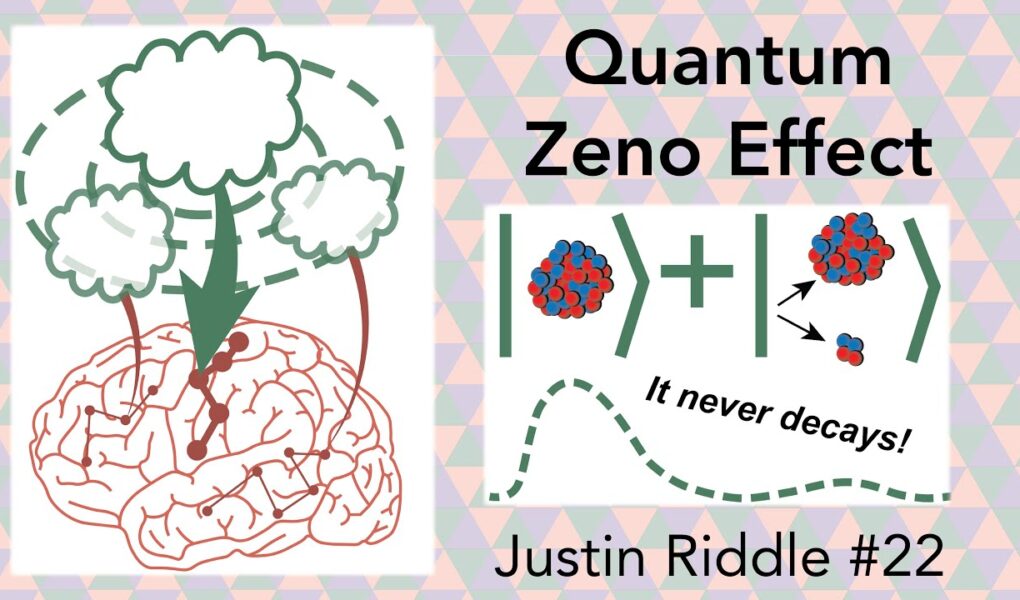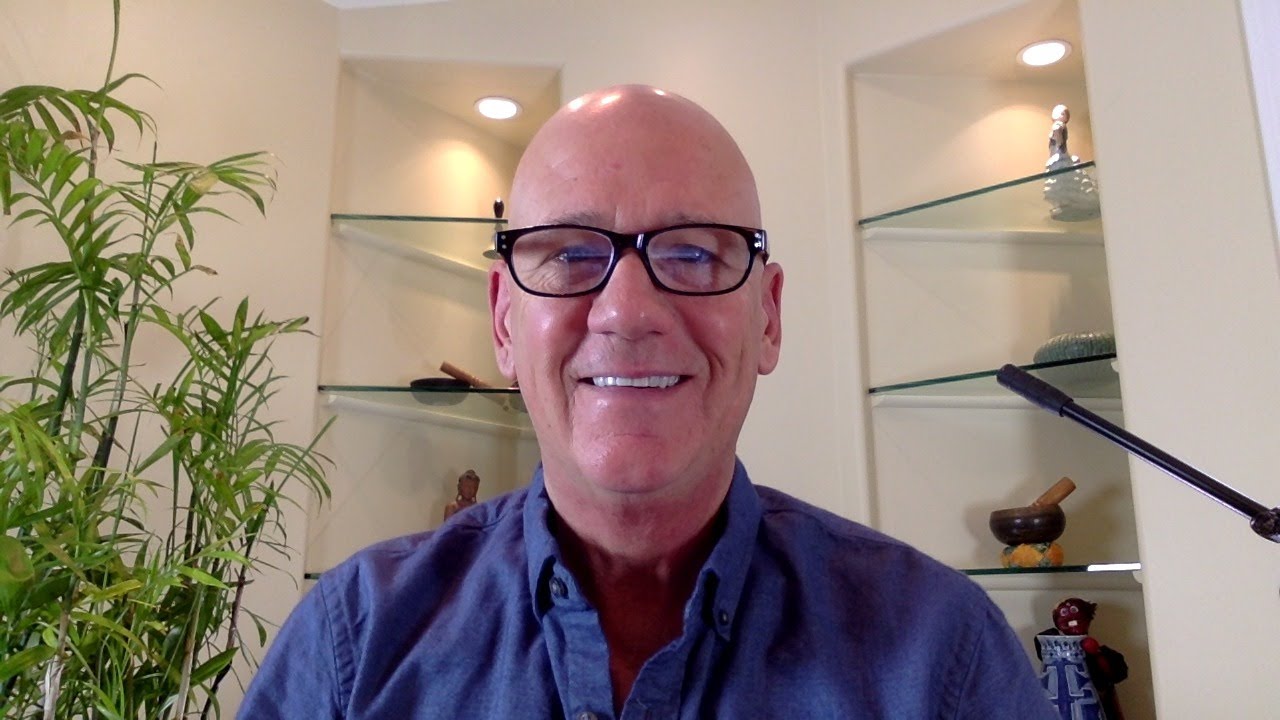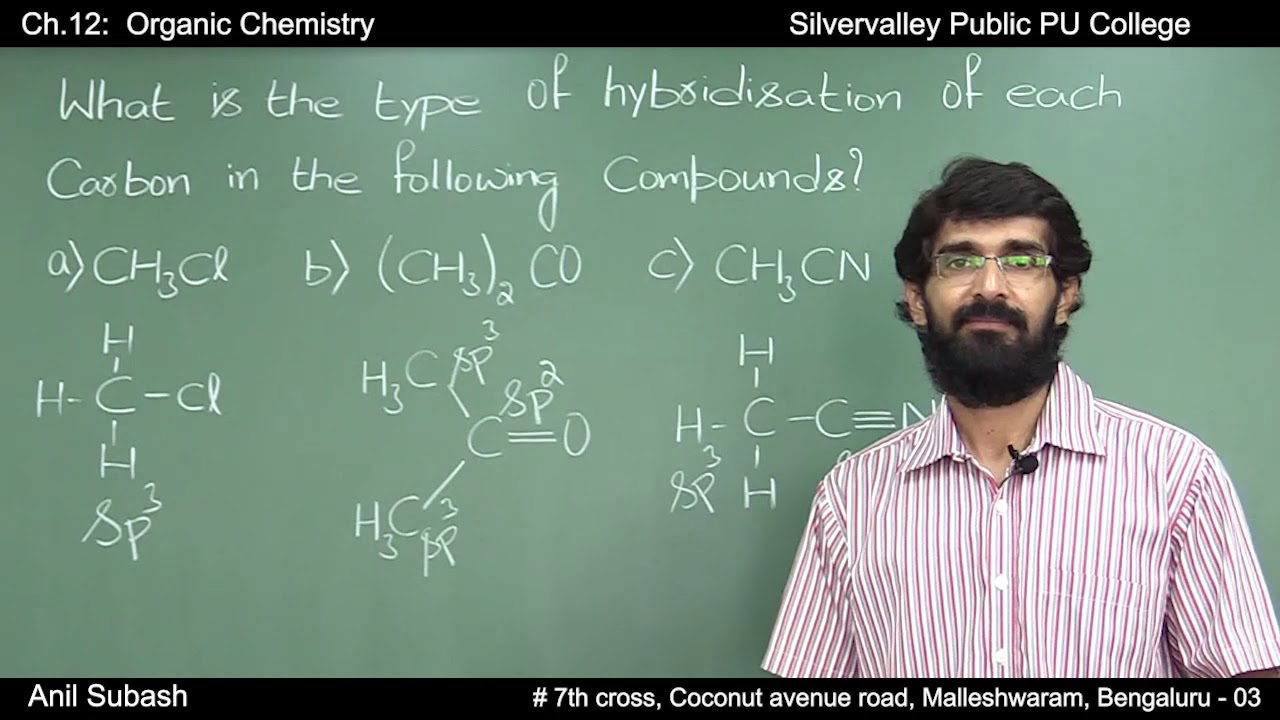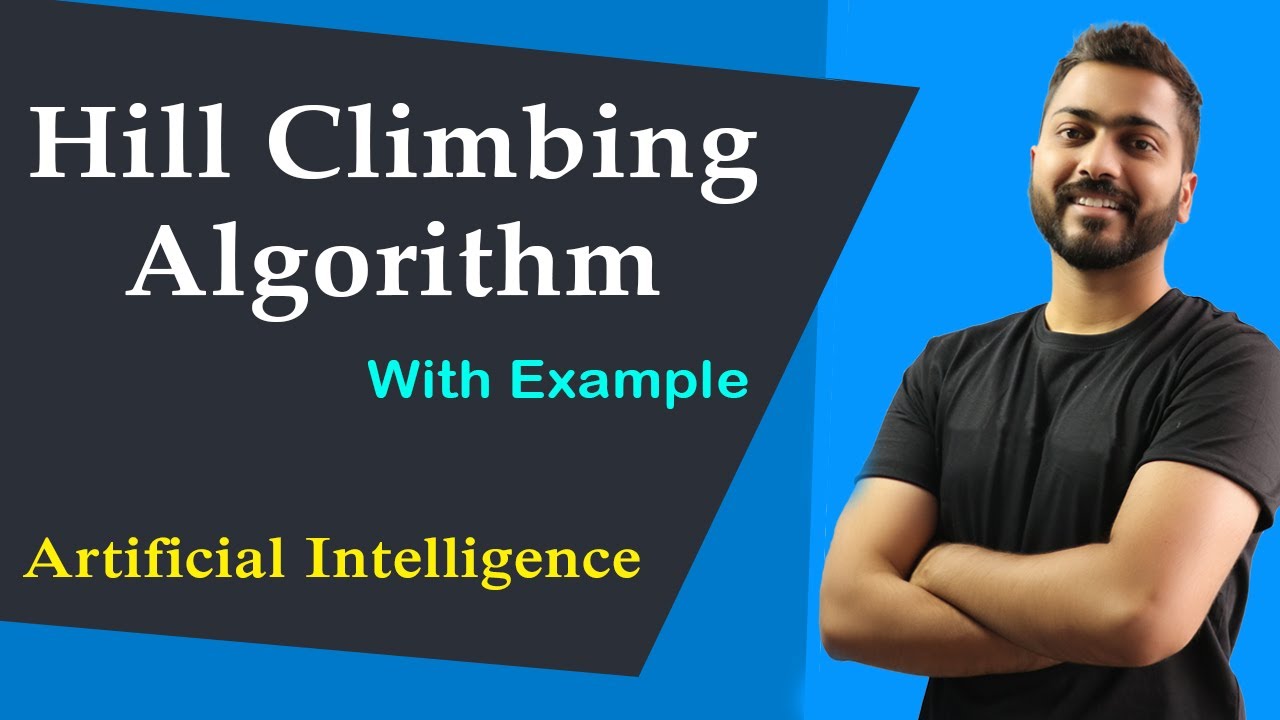Justin Riddle
In episode 22 of the Quantum Consciousness series, Justin Riddle discusses the quantum Zeno effect, the idea that with rapid measurement a system can be locked into its current state indefinitely. In the previous episode, we talked about how movement is the transition of a system from a fixed physical state into a superposition of many different states, and then upon measurement again will end up in a new state. However, it takes time for the wavefunction to evolve into a broad enough superposition with sufficient chance of ending up in a new location. So, if you make a measurement really quickly, then the system will most likely stay in the same place that it started. This leads to some strange scenarios such as a radioactive isotope that never decays as long as you keep applying rapid measurement. Henry Stapp theorized that the quantum Zeno effect may be the primary mechanism for how effortful attention makes an impact on brain activity. First, the quantum computing mind is presented with multiple options for what to do or think next; each of these options is generated by the brain. Now the mind has a choice of which option to make a reality. The mind pays attention to this thought and with enough effortful attention, this attention will change the brain and manifest the decision. The decision to choose one thought over another is a collapse of the wavefunction towards that physical outcome; however, a single collapse may not be sufficient to change the brain. With repeated collapses of the wavefunction towards that choice, the brain will get locked into that physical state and the desired choice will start to take effect. We wrap up the episode thinking about obsessive-compulsive disorder, a psychiatric illness where it is difficult to break a mental habit. Can you harness your quantum mind to change your digital brain? Find out in this episode!
~~~ Timestamps ~~~
0:00 Introduction
3:05 Measurement is an action
5:01 Rapid measurement prevents movement
12:02 Freewill is the choice to pay attention or not
15:16 Paying attention through the quantum Zeno effect
17:55 Obsessive-compulsive disorder and QZE
21:23 Your quantum mind can change your digital brain!
#quantum #consciousness #attention
Website: www.justinriddlepodcast.com
Email: justinriddlepodcast@gmail.com
Twitter: @JRiddlePodcast
Music licensed from and created by Baylor Odabashian. BandCamp: @UnscrewablePooch
Painting behind me by Paul Seli. IG: @Paul.Seli.art
Source




I agree. While I don't believe in free will because humans are pre-determined via chemical processes in the brain to behave and think a certain way, this doesn't imply that we don't have the ability to change that behavior for future events. This is very interesting when thinking about the development of second order thinking. Humans already had the ability to critically think to some extent but with second order thinking this allowed the species to represent an idea physically and then analyze and expand on such ideas. This led to the development of language and monetary system which further developed into mathematics. But if you think about this in terms of human behavior as an action, if I behave a certain way, I have the ability to be introspective which will allow for correction of my behavior, instead of only have one outcome of behavior now you gain the possibility of infinite outcomes. It seems that the brain has adapted and functions similar to that of this quantum effect by allowing for than one possible outcome. Which would seem to suggest an intertanglement of the self and the materialistic world.
This isn't mind-blowing concept!
It's mind-blown concept 😉
I mean that one has to have their brain completely fried to believe a speculation supported by other multiple speculations.
Speculation can be powerful mind tool, as long as you test your assumptions – otherwise it's worthless.
The increasingly modern tendency to support speculations with more untested speculations is just idiotic and borderline criminal!
You put into words a lot of the stuff I been thinking for a long time but wasn't able to get out.
It seems this theory makes physicalism less coherent. If mind chooses (through free will) what the brain is doing (neurons firing in specific patterns), then it seems weird that the brain produces mind.
I request attention in all the magical synchronicity I have such as my birthday woven into π seventh digit down 26 July and within three hundred digits 07260 I also have tons of anagrams I got interested after Harry Potter
You are GREAT! You are a Genius bringing complicated concepts into an easy way to comprehend. Thank you so much! ❤
This makes sense. This is basically the same idea as in acceptance and commitment therapy (ACT).
That sounds experimentally falsifiable, do you know if it's ever been tested or confirmed?
'Take back the reins of your own brain'. Awesome to hear here!!🌦️🌱🦋
How does the particle "know" it is being observed?
How does it know that a laser is an observation, and how is this laser different from ambient photons? If this difference is because of lased light vs. unpolarized ambient, would the use of ambient light "fool" the particle into "unobserved state" allowing undiluted observation?
Otherwise Consciousness itself dictates subatomic processes outside the body.
i'm afraid this argument inflames woowoo insults- unless i'm not understanding something.
Stronger coupling general collapses a metastable system (think wave) to a stable system (think state) in coupled oscillatory dynamics. Anyhow, loved William James's take on attention. What's the more precise coordinates of that quote in POP?
Great video.